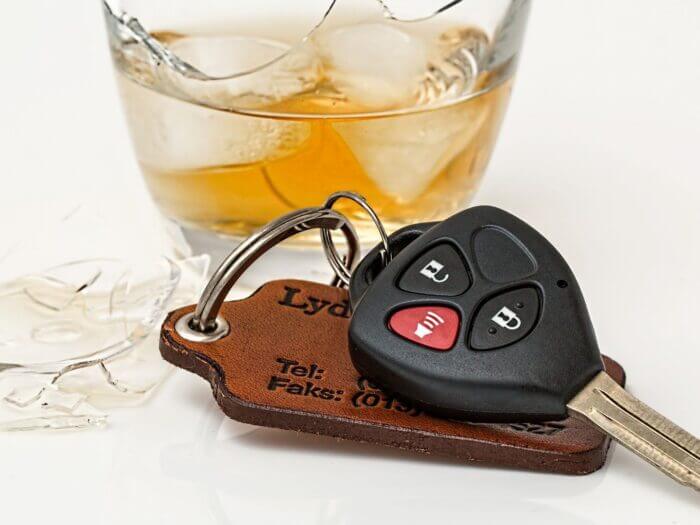When a professional driver loses his driving license, this has far-reaching consequences for his employer. After all, a driver without a driving license can no longer perform his function due to the driving ban! This can lead to labor disputes. This article provides text and explanation and offers you as an employer advice on how to deal with these situations.
There is therefore a good chance that a subdistrict court judge will be willing to terminate an employment contract with a professional driver if the driving license has been withdrawn for a longer period. It is not important whether the driving license is withdrawn during or outside working hours.
Alcohol abuse can be an urgent reason for dismissal
Alcohol abuse, whether or not resulting in a driving ban due to driving under the influence of alcohol, can be an urgent reason to justify summary dismissal. The legislator has explicitly determined this in article 7:678 paragraph 2 of the Civil Code:
“when he (the employee) indulges in drunkenness or debauchery despite a warning”.
Issuing a warning is often important before proceeding to the most far-reaching employment law sanction, namely summary dismissal.
An employer must also be aware that a certain duty of care applies if the employer is aware of an employee’s alcohol problem.
Policy on alcohol consumption
Adopting a zero-tolerance policy on alcohol consumption is also important when assessing whether or not an employer can proceed to a legally valid summary dismissal or successfully conduct a termination procedure.
Judgments of Subdistrict Court Judges on excessive alcohol consumption during working hours
To illustrate how widely Subdistrict Court Judges ruled on (excessive) alcohol consumption during working hours, I refer to two judgments in which drivers were under the influence while performing work.
(1) Despite an earlier written warning for alcohol abuse during working hours, the summary dismissal given to a gritting truck driver who was ‘in an apparent state’, to the extent that he was unable to open the door of the vehicle, did not stand.
In this case, the Haarlem Subdistrict Court considered that the employer could have been expected to provide the employee, who was known to be a problem drinker, with more help to overcome his alcohol addiction. Other considerations of the Subdistrict Court were the relatively long duration of the 10-year employment relationship and the fact that the driver had previously performed well.*
(2) A more recent example in which a summary dismissal due to alcohol abuse was upheld concerned a drunk bus driver. Employer RET had been pursuing an active zero-tolerance policy for years with regard to alcohol and drug use, which the Subdistrict Court considered important in upholding the dismissal. In addition, the driver’s blood alcohol level was so high that this also constituted a criminal offense.**
Conclusions
Zero tolerance policy for alcohol is important
It is advisable for an employer to record in writing that an active zero tolerance policy is being observed with regard to alcohol consumption in the workplace. This can be included in the employee handbook, for example. It goes without saying that this policy must be strictly adhered to.
Written warning is recommended
It is advisable to first warn an employee in writing, in the event of alcohol consumption during work. It is worth considering first imposing a less drastic sanction, such as suspension of wages.
Dismissal on the spot? Risky!
Dismissal on the spot due to alcohol consumption is always risky. An alternative may be to submit a request to terminate the employment contract due to culpable conduct and/or unsuitability for the position.
Legal assistance with alcohol abuse by a professional driver
For all employment law questions that you may encounter as an entrepreneur in the transport sector, you can contact Mr. Otto Lenselink without obligation (info@transportrechtadviseur.nl).
*District Court Haarlem, 31 March 2006, ECLI:NL:RBHAA:2006:AV7917
** District Court Rotterdam, subdistrict sector, 18 May 2015, ECL:NL:RBROT:2015:5126
January 2016
More to read
- The Hague Court of Appeal quashes verdict in the Slotboom case
- The Hague Court of Appeal decides whether driver will pay for shortage of parking spaces
- Most important changes to the collective labor agreement for professional goods transport as of January 1, 2024
- Collaboration with Polish Law Firm
- Consequences of Deliveroo for the scope of the Collective Labour Agreement for Professional Freight Transport!
- Gelderland Court reduces parcel delivery driver’s fine by more than 80%
- Is it legally required to secure loads during short stopovers?
- Court of Justice restricts repeated fining for a single offence
- Tightening enforcement of driving and rest times and tachograph fraud by the ILT
- Criminal prosecution for tachograph fraud

